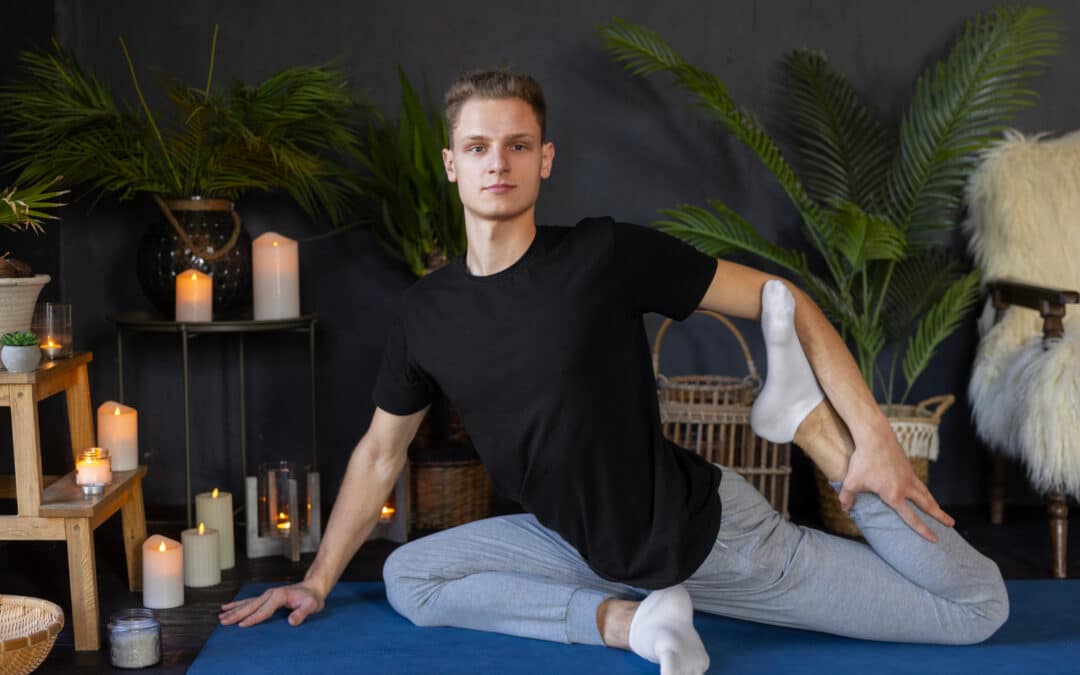Trauma can shape one’s life in profound ways, creating emotional and physical barriers that are tough to overcome. For gay men, these experiences can be particularly challenging due to societal pressures and unique life experiences. Understanding trauma’s impact is the first step toward unlocking a path to healing and self-discovery.
Understanding Trauma and Its Impact on Gay Men
Trauma impacts everyone differently, but gay men often face unique challenges due to societal discrimination and past experiences. Trauma can stem from various sources like family rejection, bullying, or even hate crimes. These experiences can lead to profound emotional and psychological scars. Such trauma might affect a person’s sense of safety and belonging, making it hard to develop healthy relationships or to feel comfortable in their own skin.
Common emotional responses include anxiety, depression, and feelings of worthlessness. Physically, trauma can manifest as tension, fatigue, and insomnia. These responses can disrupt daily life, making it difficult to function and find joy. Tailored yoga practices can help address these issues by providing techniques that promote relaxation and mental stability.
A yoga practice designed specifically for gay men recovering from trauma can provide immense benefits. It allows individuals to confront and release negative emotions in a safe space. The combination of movement, breathing, and mindfulness can help ground the body and calm the mind. By engaging in a practice that acknowledges their unique experiences, gay men can find healing and empowerment through yoga, opening pathways to recovery and improved well-being.
Key Yoga Techniques for Trauma Recovery
Certain yoga poses can offer grounding and a sense of safety, which are crucial for trauma recovery. Poses such as Mountain Pose and Child’s Pose help establish a stable physical base, encouraging feelings of security. Other supportive poses like Tree Pose can promote balance and focus, fostering inner strength and resilience.
Breathwork is another essential component. Techniques like deep belly breathing or Ujjayi breath help regulate the autonomic nervous system. Controlled breathing can decrease anxiety and improve emotional health, allowing one to process and heal from trauma. Encouraging slow, mindful breaths restores calm and teaches the body to respond differently to stress.
Mindfulness techniques further enhance this journey. Practices such as meditation and body scans can heighten self-awareness and emotional regulation. These techniques teach individuals to observe their thoughts without judgment, fostering an environment of acceptance and understanding. By integrating mindfulness into yoga, gay men can reconnect with themselves, creating a sense of peace and self-acceptance.
Combining these elements creates a robust practice supporting trauma recovery. Yoga becomes more than just exercise; it becomes a life-affirming practice helping gay men rebuild their connections with themselves and the world around them. Embracing these techniques helps pave the way for holistic healing and personal growth.
Combining Yoga with EMDR and Somatic Experiencing
Integrating yoga with EMDR (Eye Movement Desensitization and Reprocessing) offers unique benefits for trauma recovery. EMDR helps process traumatic memories by stimulating the brain through bilateral movements, such as tracking a therapist’s hand motions. Combining this therapy with yoga enhances the healing experience by engaging the mind and body simultaneously. Yoga encourages mindfulness and body awareness, helping to ground emotions and create a safe internal space for addressing difficult memories.
Somatic experiencing further complements yoga practices in trauma recovery. This method focuses on releasing stored tension in the body by working through the sensations and feelings that arise during yoga. Practicing somatic experiencing can deepen the connection one has with their body, where trauma is often held. It promotes a sense of release and safety when combined with mindful yoga practice, allowing individuals to process feelings more effectively.
For blended practices, try incorporating gentle yoga flows with somatic experiencing techniques by becoming aware of bodily sensations during poses. Pair EMDR therapy sessions with calming yoga practices like Hatha or restorative yoga, which help consolidate emotional processing and foster relaxation. These integrative strategies empower gay men to manage trauma with a holistic approach, paving the way for lasting healing and resilience.
Building a Personal and Supportive Yoga Routine
Creating a personalized yoga routine is vital for sustaining trauma recovery. Start by setting clear intentions and determining the aspects of well-being you wish to improve, such as reducing anxiety or boosting mindfulness. Tailor your routine to fit your current needs and limitations to avoid feeling overwhelmed. Incorporate various yoga styles such as gentle Hatha for foundational poses and Vinyasa for flow and movement when you’re ready.
For additional support, engage with resources like online yoga classes, meditation apps, or local yoga studios that offer specialized sessions for gay men. Attend retreats or workshops focused on trauma recovery to gain deeper insights into mindful practices and connect with instructors who understand your unique journey.
Building community connections can significantly enhance the recovery process. Join a yoga group or community that shares your experiences, fostering a sense of belonging and mutual support. Yoga retreats and group classes provide an opportunity to share your progress, challenges, and victories alongside others who understand the path you’re on. These connections can bolster your commitment to healing, offering encouragement and shared wisdom that lifts everyone involved.
Conclusion
Incorporating effective yoga practices into trauma recovery offers gay men a path towards healing that respects both the mind and body. By understanding the impact of trauma and employing techniques from yoga, EMDR, and somatic experiencing, individuals can transform their emotional landscapes. Creating a personalized routine and joining a supportive community further enriches this journey, ensuring that healing is both holistic and sustainable.
Embrace this transformative journey by joining the enriching world of yoga. Connect with Danni Pomplun, a dedicated Yoga Educator and Mentor, to explore tailored yoga practices designed for recovery and personal growth. Whether through yoga classes in San Francisco, retreats, or personalized mentorship, discover how you can foster resilience and embrace your authentic self in a nurturing environment. Visit Danni Pomplun’s site to begin your healing adventure today.

